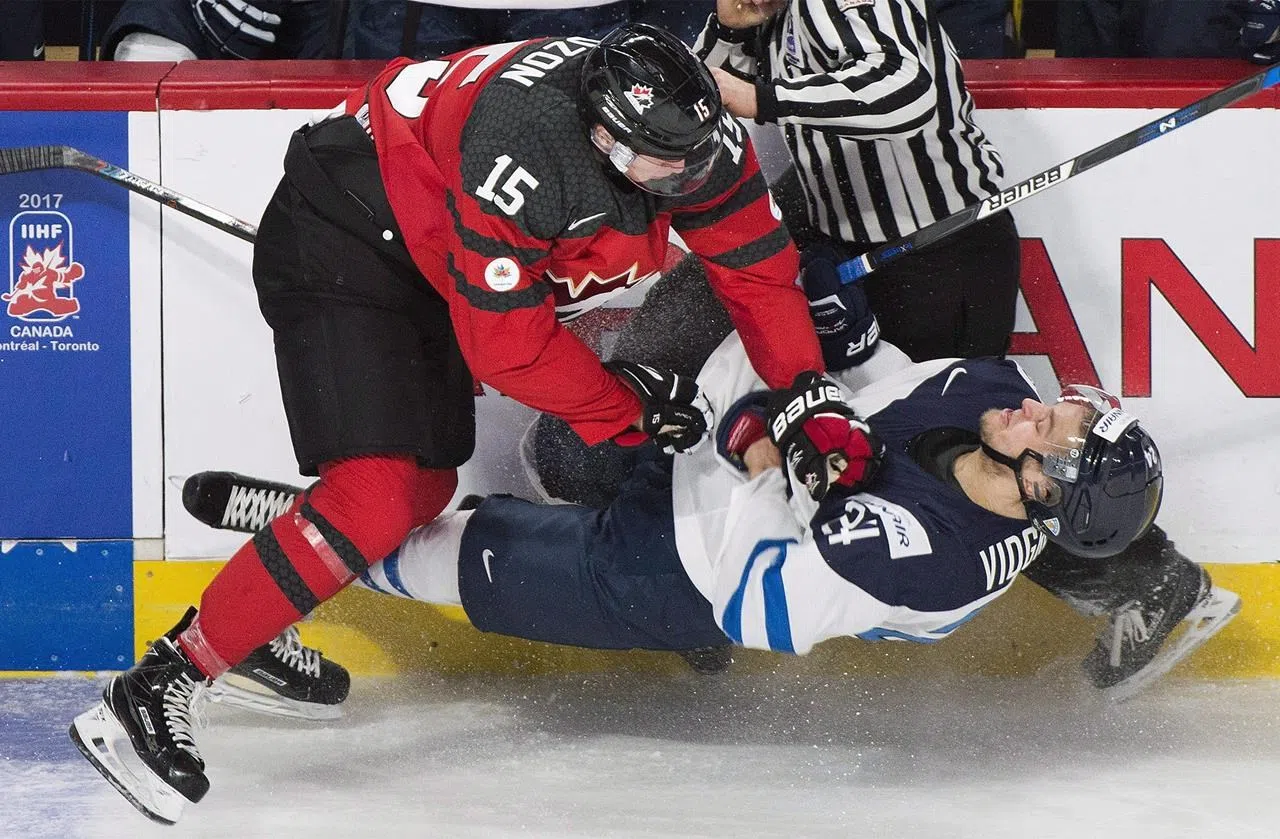
Canada’s speed, teamwork raises hopes for world junior gold on home ice
MONTREAL — Playing on home ice with a team built for speed and tenacity could be a winning combination for Canada at the world junior hockey championship.
While Canada is missing teenage stars like Connor McDavid and Mitch Marner, who have already graduated to the National Hockey League, their closest rivals will also be without top talent at the tournament, which runs from Dec. 26 to Jan. 5 in Toronto and Montreal.
Coach Dominique Ducharme brings a team four lines deep in scoring ability with a decent defence and what they expect will be better goaltending with Carter Hart and Connor Ingram than the Canadian side that was eliminated by Finland in the quarter-finals of last year’s world juniors in Helsinki.
Canada has five players back from that team: forwards Dylan Strome, Julien Gauthier, Mitchell Stephens and Mathew Barzal and defenceman Thomas Chabot. Forwards like Quebec league goals leader Mathieu Joseph, 2016 third-overall draft NHL pick Pierre-Luc Dubois, Ontario Hockey League scoring ace Taylor Raddysh and University of North Dakota digger Tyson Jost should give them four lines that can provide offence.



